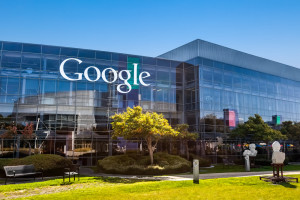Google, the search engine market leader and tech giant, might have to worry about its competition a little more in coming times. For years, Google has held a majority market share between 66% and 67%. The next closest competitor Bing holds only 18% market share. This dominance has allowed Google to walk on a very fine line in some of its business dealings, but this trend might be coming to an end.
Over the past few years, Google has repeatedly come under scrutiny for the legality of their widespread data collection and for violating consumers’ privacy. Just this month, Google released a brief to the federal court stating their users “cannot be surprised if their emails are processed by the recipient’s email provider in the course of delivery”. “Indeed, a person has no legitimate expectation of privacy in information he voluntarily turns over to third parties.” In addition to this, more allegations are arising that expose Google for blatantly ignoring consumer demands to not track there behavior. These are only a few examples of the troubles that Google’s legal team has had to deal with.
This leads to the question will consumers continue to stand for this questionable behavior? While the answer is still widely unknown, there is some evidence to suggest that competitors are finding ways to compete. One example is seen in Yahoo. According to ComScore, Yahoo “drew more unique Web visitors (roughly 197 million) than any other U.S. Internet firm in July for the first time since spring 2011, besting rivals Google (192 million), Microsoft (180 million) and Facebook (142 million).”
Another example can be seen in Search Engine Customer Satisfaction Surveys. According a 2013 study by ForSee, Google has been beat for the second year in a row by Bing, and has tied with Yahoo and MSN.
In addition to this, we have seen an impact in Google’s most profitable department of Paid Search. Over the past six consecutive quarters, Bing and other paid search companies have continued to steal away market share from the search engine giant. Since the same time last year, search advertising spend increased by 23% for Bing, and only 13% for Google. The industry as a whole grew by close to 15%.
Overall, we will have to wait and see how Google will respond to the decline in market share. However, the almost too big to fail institution has certainly diversified itself over the past years and can take a minor hit in its paid search department.
Kevin Ashworth
Just Media, Inc.
Sources:
http://searchengineland.com/report-global-paid-search-spending-up-18-in-2012-145127
http://news.techeye.net/security/google-says-no-legitimate-privacy-for-gmail-users
http://www.consumerwatchdog.org/resources/googlemotion061313.pdf
http://searchengineland.com/google-sees-lowest-score-ever-in-customer-satisfaction-survey-167600
http://searchengineland.com/more-than-19-3-billion-searches-in-july-google-and-bing-both-up-169767
http://www.adweek.com/news/technology/yahoo-no-1-traffic-comscore-151978
http://news.techeye.net/security/privacy-group-alleges-google-ignores-uk-law
http://online.wsj.com/article/SB10001424127887324170004578635812623154242.html



